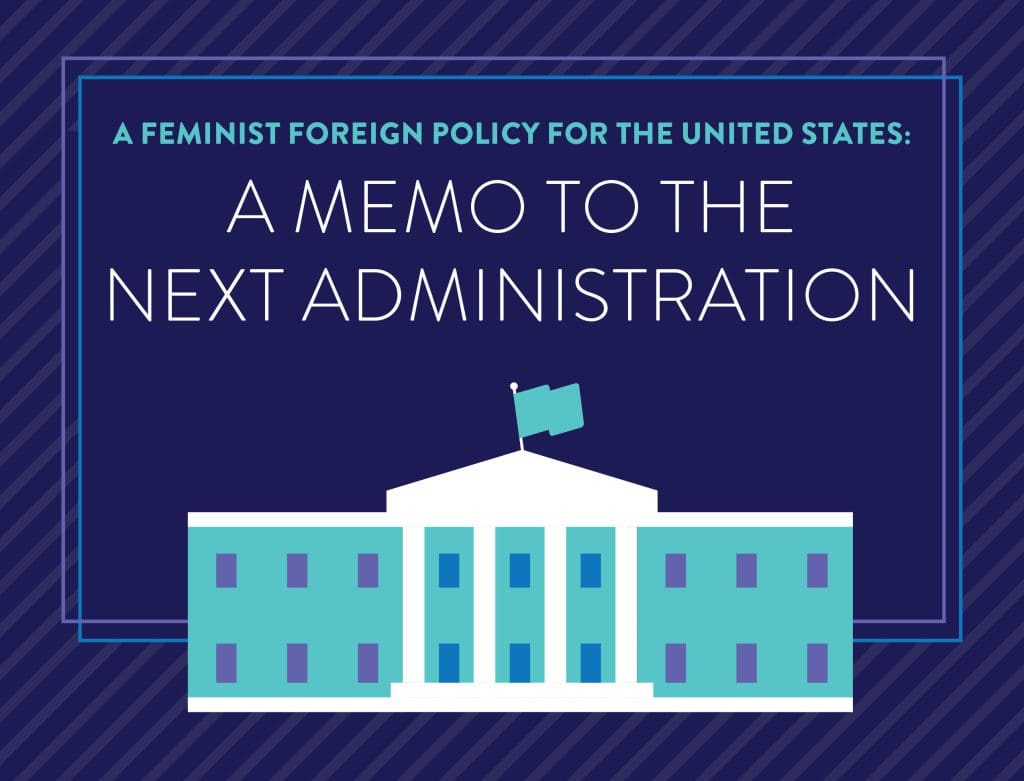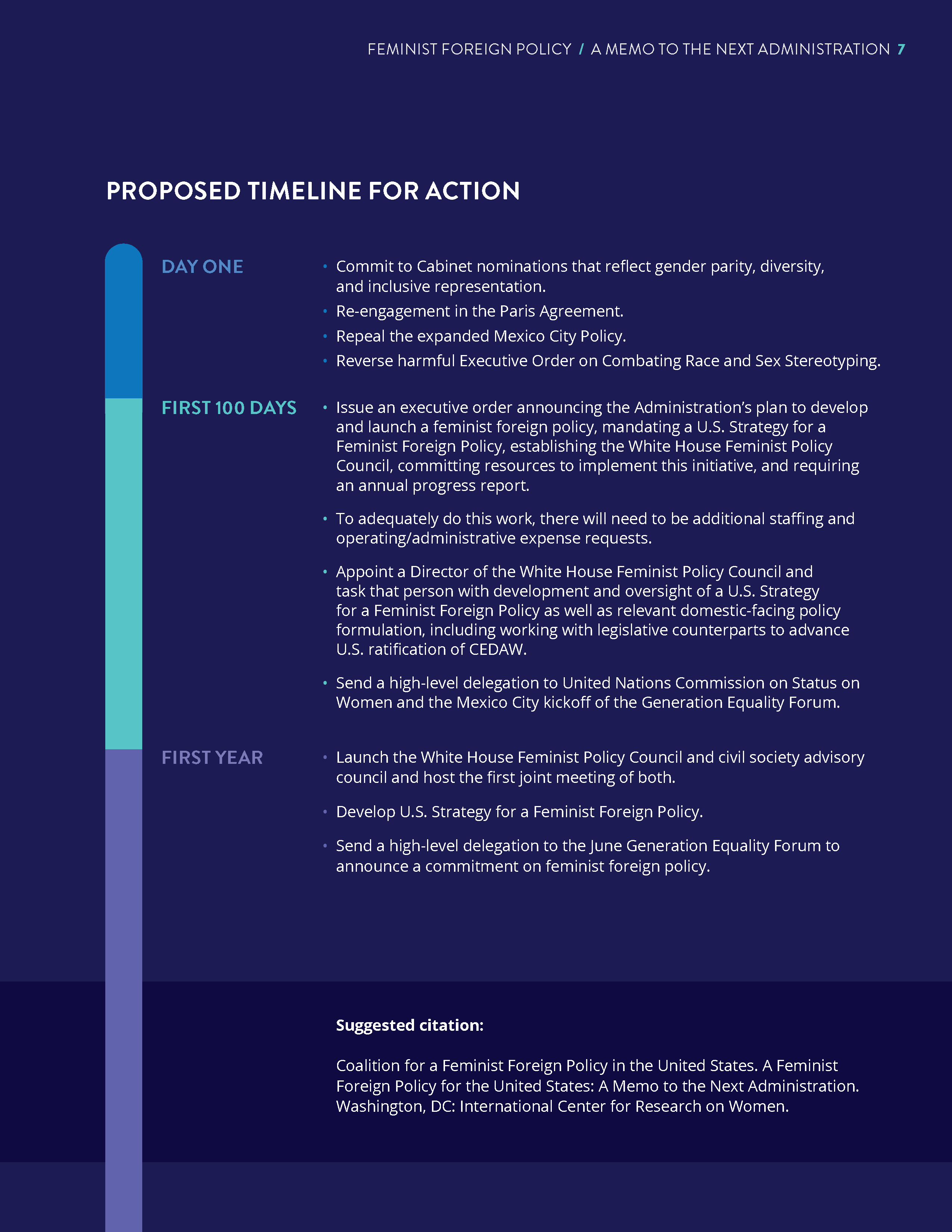
A Feminist Foreign Policy for the United States: A Memo to the Next Administration
 The COVID-19 global pandemic, recession and racial justice movements around the United States have reinforced the need to move away from a “business as usual” approach to policymaking.
The COVID-19 global pandemic, recession and racial justice movements around the United States have reinforced the need to move away from a “business as usual” approach to policymaking.
A feminist foreign policy offers a blueprint for the next U.S. Administration to depart from “business as usual” and assert leadership in tackling global inequality.
As defined in our working paper, a U.S. feminist foreign policy would ensure that the United States’ interactions with other states, as well as social movements and other non-state actors, prioritize peace, gender equality and environmental integrity; enshrine, promote and protect the human rights of all; seek to disrupt colonial, racist, patriarchal and male-dominated power structures; and allocate significant resources, including research, to achieve that vision.
Key Recommendations
To achieve a feminist foreign policy that creates a safer, more equal and prosperous world that respects the rights of all, the United States should pursue executive action focusing on four core areas:
- Policy Articulation: The next Administration should develop and launch an overarching U.S. Strategy for a Feminist Foreign Policy and ensure effective integration within executive branch agencies.
- Leadership and Structures: The President should assemble a White House Feminist Policy Council, led by a newly appointed Director, reporting to the President, with a clear mandate and resources to drive the development and implementation of the U.S. Strategy for a Feminist Foreign Policy.
- Funding: 100 percent of U.S. international programs should consider and incorporate intersectional gender analysis in their design, implementation and evaluation (i.e., be “gender mainstreamed”). Given gender equality’s central importance to global sustainable development, environmental integrity, justice, security and economic prosperity, no less than 20 percent of U.S. foreign assistance funding should be dedicated to promoting gender equality as a primary goal across various sectors and appropriations funding mandates.
- Accountability: U.S. Government agencies should be transparent and held accountable for progress in implementing the U.S. feminist foreign policy. The goals set under this policy framework should be “SMARTIE” (specific, measurable, answerable, relevant, time-bound, inclusive and equitable) objectives, making it possible for those charged with implementation, Congress, and civil society to have a clear shared understanding of precisely what the U.S. Strategy for Feminist Foreign Policy seeks to accomplish and through what means.

To download the full report, click on the button below.
Coalition for a Feminist Foreign Policy in the United States. A Feminist Foreign Policy for the United States: A Memo to the Next Administration. Washington, DC: International Center for Research on Women.
